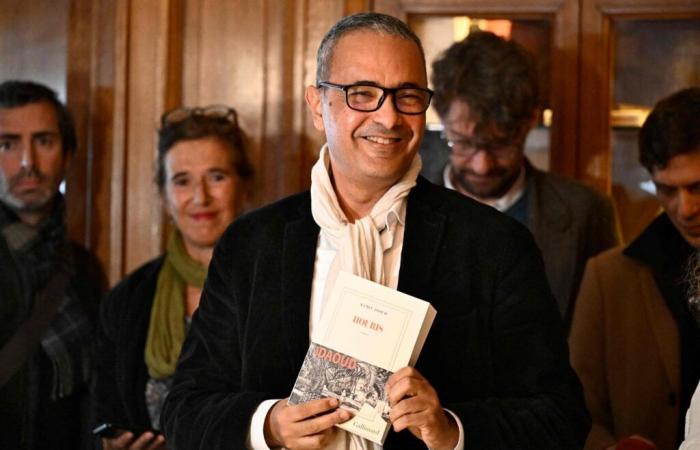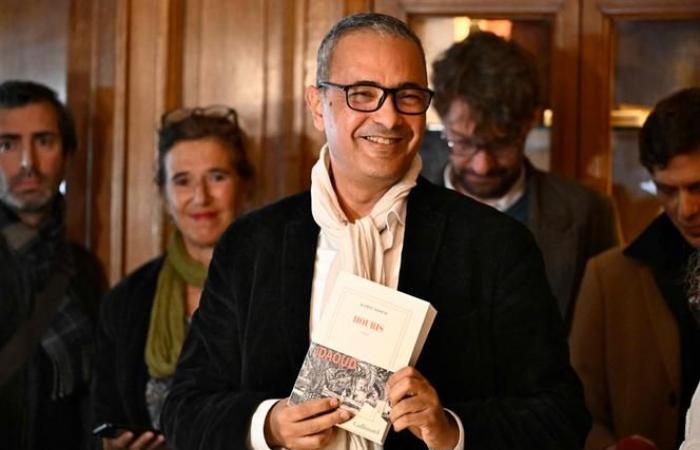It has been weeks since he was announced as the favorite: Kamel Daoud received, Monday, November 4, the Goncourt prize for Houris (Gallimard, 416 p., 23 euros, digital 15 euros). This third novel, of striking force in its dark and serious lyricism, gives voice to Aube, a young woman rendered mute by the botched throat slitting of which she was the victim at five years old. It was during the “black decade” of clashes between Islamist groups and the Algerian army (1992-2002). Aube speaks to Houri, the little girl she carries in her womb and who she is thinking of aborting, and leaves for the village where she was injured, and where her parents, her sister and a thousand other villagers were murdered.
Does it mean anything to you to be the first Algerian writer to receive the Goncourt Prize, especially in a context where political and memorial tensions with France are particularly strong?
I am a child of Algeria, of the Algerian school, of Algerian ambitions. This award has a lot of meaning, first of all, on a personal level (how can I escape it?): it is a success for me, my family. It is also a strong signal for budding Algerian writers, these writers who are terrorized by certain political currents, who are destroyed in the cradle and who are afraid to write. It's important for them to know that writing a book is a process that can have a happy ending.
As for context, I'm a writer, not a politician. A book pushes you to imagine, to hope for other things. A book does not change the world, but when it is widely read, it can become an instrument, a message. What I hope is that this book makes people in the West discover the price of freedoms, particularly for women, and that it makes people understand in Algeria that we need to confront our entire history, and that we do not we don't need to fetishize part of history [la guerre d’indépendance] compared to the other [la guerre civile des années 1990].
Read also | Gallimard, the publisher of Kamel Daoud, excluded from the Algiers Book Fair
Read later
You often say that France is blind to the rise of Islamism and political Islam, that it does not want to learn the lessons of what led to the “black decade” in Algeria. From this point of view, do you hope that Goncourt will have effects?
It's the readers who make a book resonate or not. Me, I am a writer, columnist, journalist, and Algerian (which is a profession in itself), and I hope that we will open our eyes. I have the impression of being in roughly the same situation, all things considered, as the Soviet writers who warned about the gulag at the time when the merits of communism were being sung in the West. Someone had to, at some point, say that just because we hated imperialism doesn't mean the gulag didn't exist.
You have 54.28% of this article left to read. The rest is reserved for subscribers.







